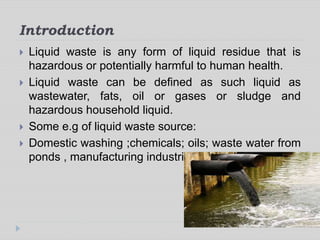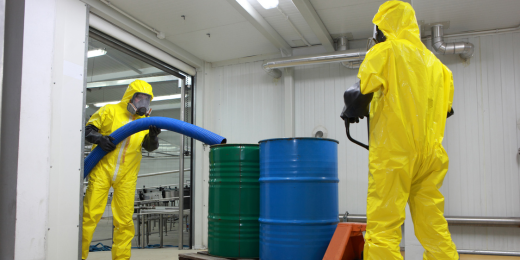The Basic Principles Of Reclaim Waste
The Basic Principles Of Reclaim Waste
Blog Article
The Definitive Guide to Reclaim Waste
Table of ContentsThe Single Strategy To Use For Reclaim WasteGetting My Reclaim Waste To Work8 Simple Techniques For Reclaim WasteNot known Details About Reclaim Waste What Does Reclaim Waste Mean?
Residential sewage waste refers to the waste and products from a residential septic storage tank. The proper administration and disposal of residential sewage waste need fluid waste to be moved to a sewage treatment plant where the correct methods and devices are used to purify and dispose of waste.
Industrial waste often includes possible hazards, such as flammable products or a combination of liquid and solid waste items, and calls for a more sophisticated and detailed disposal procedure. The disposal of business waste generally includes the purification of waste prior to transportation to guarantee risk-free and correct disposal. Industrial waste is created from by-products and overflow of commercial procedures and manufacturing.
This sort of waste can not use the same sewage administration transport or procedures as septic or business fluids. The hazardous waste monitoring procedure requires the inspection and testing of liquid waste before it undergoes the disposal process (liquid waste removal melbourne). Overflow waste is the liquid waste that comes from runoff and excess stormwater in highly populated areas or cities
Runoff waste can cause contamination and flooding if not taken care of effectively. Making sure appropriate waste management can protect against calamities and minimize environmental harm.
The Ultimate Guide To Reclaim Waste
Contact PROS Solutions today to find out about our waste management and disposal services and the correct ways to look after the liquid waste you create.
(https://www.edocr.com/v/pd6avrzq/leonaube33101/reclaim-waste)Do you recognize what occurs to your water when you disengage, purge the bathroom or drain pipes the washing machine? No? Well, it deserves knowing. This supposed 'wastewater' is not only an essential resource but, after therapy, will be launched to our land, rivers or the sea. Made use of water from bathrooms, showers, bathrooms, kitchen area sinks, washings and industrial procedures is called wastewater.

water utilized to cool down machinery or clean plant and equipment). Stormwater, a type of wastewater, is overflow that flows from agricultural and city areas such as roofings, parks, gardens, roads, courses and gutters right into stormwater drains, after rain. Stormwater moves neglected straight to local creeks or rivers, ultimately getting to the sea.
The Of Reclaim Waste
In Queensland, a lot of wastewater is dealt with at sewer therapy plants. Wastewater is moved from residential or commercial sites via a system of sewers and pump terminals, referred to as sewerage reticulation, to a sewage therapy plant. City governments build, maintain and operate most sewer therapy plants. Operators are accredited under the Environmental Defense Act 1994 to release cured wastewater at an appropriate ecological requirement into waterways.
The Division of Natural Resources recommends city governments about handling, operating and preserving sewerage systems and therapy plants. In unsewered locations, regional governments might call for homeowners to set up individual or house sewer treatment systems to treat residential wastewater from bathrooms, kitchens, restrooms and washings. The Department of Natural Resources authorizes making use of family systems when they are shown to be efficient.
Many stormwater receives no therapy. In some new subdivisions, therapy of some stormwater to eliminate litter, sand and crushed rock has started utilizing gross pollutant catches. Wastewater treatment happens in four phases: Removes strong matter. Bigger solids, such as plastics and other items wrongly released to sewers, are gotten rid of when wastewater is travelled through displays.
Utilizes little living microorganisms recognizes as micro-organisms to break down and eliminate continuing to be dissolved wastes and fine bits. Micro-organisms and wastes are included in the sludge.
Little Known Facts About Reclaim Waste.
Nutrient removal is not available at all sewer therapy plants since it needs expensive specialised tools. Clear fluid effluent created after treatment might still consist of disease-causing micro-organisms - liquid waste removal.

Most wastewater streams into the sewage system. Under the Act, local governments administer authorizations and licences for eco appropriate tasks (Ages) entailing wastewater launches that might have a neighborhood effect.
The 45-Second Trick For Reclaim Waste
Monitoring offers accurate info regarding water high quality and can verify that permit problems are being satisfied. The info gotten via monitoring provides the basis for making water quality decisions.
Report this page